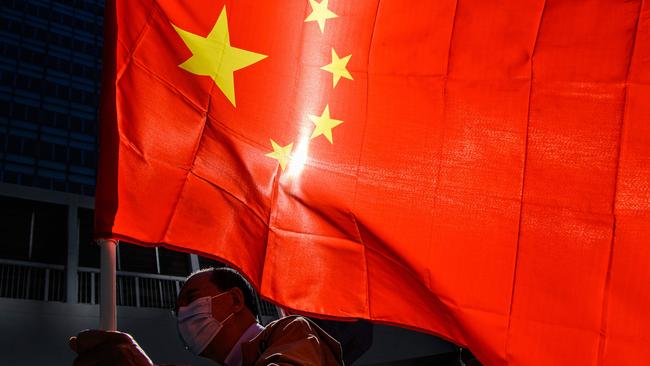
While the iron ore industry still seems to have strong ties with China, the gamut of businesses in what was a $150bn a year export trade to China – from coal, barley, wine, wool, beef and lobster to travel and tourism – is now rethinking its future.
Looking back, the end of 2019 looks like a golden period when Australia was benefiting from record numbers of Chinese tourists and students and selling a record amount of iron ore, wine, beef, barley and other products to China.
The China Australia Free Trade Agreement was powering ever increasing bilateral trade by removing tariffs and other trade impediments.
IN BUSINESS: PICTURES FROM 2020
A year on, a combination of COVID and deteriorating political ties have delivered a clear message - Australia can no longer rely on continued strong trade ties with China and those companies that are heavily reliant on that market will need to rethink and revise their business models.
In some cases – such as small wineries – it might see once thriving businesses shut down or severely curtailed.
The pressure is on for those companies in the minerals, agribusiness and services sector to look for new markets.
The Asia Society has released a paper highlighting the potential of Vietnam as an export market, while the barley industry has refocused some of its export attention to the Middle East.
Brexit opportunity
At the same time, there might be a new – albeit smaller – market opening up with the departure of Britain from the European Union on January 1.
Australian agricultural exports in particular were hit hard in January 1973 when Britain joined the European Union, forced to look for new markets which they found in Asia.
Australia is keen to sign a free-trade agreement with Britain that could be expected to be finalised sometime next year.
But in general the biggest potential for Australian exports will be in Asia, with its more substantial population and growing economies.
The Morrison government’s push for strong ties with Japan, that saw the Prime Minister make a lightning visit to meet its new Prime Minister Yoshihide Suga recently, was more about politics than trade.
But the closer ties with Australia’s second-biggest trading partner could pave the way for more Japanese investment into Australia at a time when Chinese investment is falling away, with potential new entrants effectively being discouraged.
Continued economic weakness in Europe, which has been hard hit by COVID, will limit its potential as a new export market for Australian companies.
Weeks away from the inauguration of a new US President in Washington in late January, it is too early to tell what opportunities the election of Democrat President Joe Biden could have on Australian trade and business ties with the US.
Continued investment from the US has been welcomed in Australia.
While there are long-time strong business ties between Australia and the US, and President Biden will have a stronger emphasis on clean energy than President Donald Trump, there has been little focus on Biden’s economic policies to date.
His ability to make radical changes will be proscribed by a potential Republican controlled Senate, but his presidency could see more emphasis on the rollout of new infrastructure across the US.
Ties with Canada
Often below the radar, Australia’s business ties with Canada are also healthy.
As exports of both minerals and agricultural products, Australia and Canada sometimes compete in the same markets, but Canadian pension funds have been steadily increasing their stake in Australia in recent years.
With new investments from China being discouraged, Canadian pension funds have less competition for assets in Australia and are seen as politically acceptable.
In short, 2021 will see Australian companies reliant on the China market under pressure to refocus their business model into other markets, particularly other Asian countries.
At the same time Australian companies will be watching developments in the UK and the US to look for new potential business opportunities from political changes set to take place in early 2021.
2021 could also see those Australian companies heavily reliant on operations overseas start to reassess their viability.
Some mergers and acquisition experts now predict that with the continuation of COVID and its restrictions on travel, some Australian companies will start to reassess their global operations with a more critical eye, potentially opting for a smaller, slimmed down operation more focused on the Australian market.
At the same time, 2020 has also been a wake-up call for those Australian companies heavily reliant on sourcing imports from China.
The need to rethink supply chains and diversify away from reliance on China was already being discussed a year ago.
But it has been one of the key messages of the turbulence of 2020.
At the very least, those Australian companies heavily reliant on suppliers from China will be looking to diversify a significant amount of their sourcing from other markets.




One of the big challenges for Australian business in 2021 will be for those companies relying on exports to China, still Australia’s largest trading partner, to re-evaluate their future.